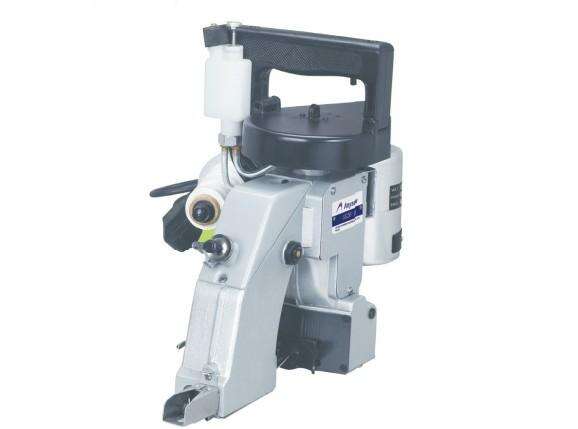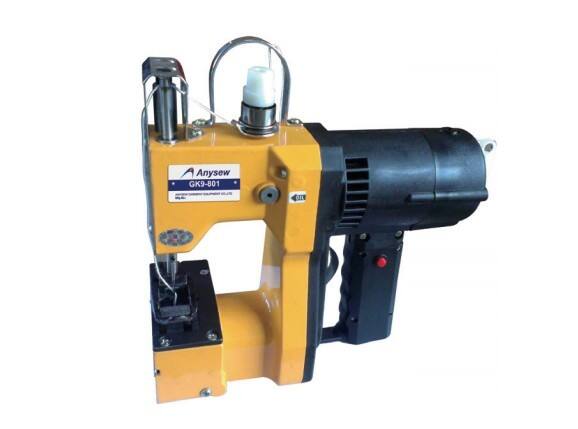What Are the Different Types of Bag Closer Machines
In modern packaging and manufacturing industries, efficiency, precision, and reliability are essential. One of the key tools that ensures products are securely sealed and ready for transportation or storage is the bag closer machine. These machines play a critical role in maintaining product quality and reducing loss during handling and shipping. From food items to industrial materials, bag closer machines are used across various sectors to meet the high standards of packaging. Understanding the different types of bag closer machines can help businesses choose the right equipment for their production needs and optimize their packaging process.
The Role of Bag Closer Machines
Bag closer machines are designed to seal bags of various materials, including paper, cloth, jute, plastic, and polypropylene. By automating or simplifying the bag sealing process, these machines not only save time but also ensure consistency and strength of the closure. Unlike manual stitching or tying, which can be inconsistent and slow, bag closer machines offer speed, precision, and durability. They are widely used in industries such as agriculture, food processing, chemicals, construction, and textiles.
The primary function of bag closer machines is to prevent product leakage, contamination, and spoilage. In sectors like food production, maintaining hygiene is crucial, and secure sealing ensures that products remain fresh until they reach the end user. In industrial applications, tightly closed bags prevent spillage and protect materials from moisture, dust, and other environmental factors.
Types of Bag Closer Machines
There are several types of bag closer machines, each with distinct features, capabilities, and applications. The choice of machine depends on factors such as bag material, production speed, labor availability, and budget.
Hand-Operated Bag Closer Machines
Hand-operated bag closer machines are manually controlled devices designed for smaller operations or low-volume production lines. These machines typically feature a lever or handle mechanism that allows the operator to close and stitch bags quickly and securely.
These machines are highly portable, requiring no electricity, and are ideal for remote areas or temporary packaging stations. Although manual effort is involved, hand-operated bag closer machines significantly improve efficiency compared to sewing bags entirely by hand. They are commonly used in small-scale agricultural settings, local packaging units, and workshops where the production volume is moderate.
Electric Bag Closer Machines
Electric bag closer machines are powered by an electric motor, which automates the stitching process. These machines are designed for medium to high-volume production and can handle various bag materials efficiently.
Electric machines offer consistent stitching, adjustable speed, and stronger closure compared to manual machines. Operators simply guide the bag into the machine, and the stitching is completed automatically. Electric bag closer machines are commonly used in food processing units, textile manufacturing, chemical packaging, and construction material packaging. These machines reduce labor fatigue and increase throughput, making them suitable for production lines with continuous operation requirements.
Pneumatic Bag Closer Machines
Pneumatic bag closer machines utilize compressed air to operate the stitching mechanism. These machines are favored in industrial settings that require high-speed bag closing and have a compressed air system already installed in the facility.
The use of pneumatics allows for rapid stitching, minimal manual effort, and precise control over the stitch tension. Pneumatic machines are particularly useful for sealing heavy-duty bags such as those used for cement, chemicals, fertilizers, and grains. The speed and reliability of pneumatic bag closer machines make them suitable for large-scale operations where efficiency is critical.
High-Speed Automatic Bag Closer Machines
High-speed automatic bag closer machines are designed for large-scale industrial applications that demand rapid packaging. These machines can close hundreds of bags per hour with minimal human intervention.
Automatic bag closer machines often include features such as programmable stitch length, automatic feeding, and tension adjustment. They are suitable for operations where consistency, speed, and minimal labor are required. Industries such as rice milling, flour packaging, and bulk chemical distribution commonly use these machines. By automating the process, these machines reduce errors, increase output, and maintain high-quality stitching.
Portable Bag Closer Machines
Portable bag closer machines are lightweight and compact devices designed for on-the-go operations. These machines are usually electric and can be easily transported between different packaging stations or temporary setups.
Portable machines are ideal for small-scale farmers, local packaging businesses, and markets where mobility is essential. Despite their size, modern portable bag closer machines offer reliable stitching for various bag materials. They combine convenience with efficiency, allowing businesses to maintain flexibility in their operations without compromising the quality of the closure.
Industrial Bag Closer Machines
Industrial bag closer machines are robust, heavy-duty equipment designed to handle large-scale production in demanding environments. These machines can operate continuously, close heavy-duty bags, and withstand rigorous usage over extended periods.
Industrial machines often come with advanced features such as digital controls, adjustable stitch settings, multiple stitching options, and automatic bag feeding. They are suitable for packaging materials such as cement, fertilizer, chemicals, grains, and food products on a massive scale. Industrial bag closer machines are designed for maximum efficiency, ensuring that production lines operate smoothly and without interruptions.
Specialized Bag Closer Machines
Certain industries require specialized bag closer machines tailored to specific materials or packaging standards. For example, food-grade machines are designed to meet hygiene and sanitation requirements, with stainless steel components and easy-to-clean surfaces. Machines designed for chemical or fertilizer bags often include corrosion-resistant materials and high-tension stitching capabilities.
Specialized bag closer machines ensure compliance with industry regulations, maintain product safety, and cater to unique operational needs. Businesses benefit from these machines by improving both efficiency and quality assurance in their packaging processes.

Stitch Types and Bag Closer Machines
The type of stitch is a key factor in determining the suitability of a bag closer machine for a particular application. Single-stitch machines are suitable for lightweight materials, while double-stitch or triple-stitch machines provide extra security for heavy or bulky bags. The selection of stitch type depends on the material of the bag, the weight of the contents, and the required durability of the closure.
Some modern machines allow operators to adjust stitch length and tension, ensuring that every bag is sealed correctly regardless of the material or weight. By choosing the appropriate stitch type, businesses can reduce product leakage, minimize packaging failures, and maintain a professional appearance.
Safety and Maintenance Considerations
When using bag closer machines, safety and maintenance are paramount. Operators should be trained to handle machines correctly to prevent accidents, especially with electric and pneumatic models. Safety features such as automatic shutoff, protective covers, and emergency stop buttons enhance operator safety.
Maintenance practices vary depending on the type of machine. Regular lubrication, inspection of moving parts, and cleaning of the needle or stitching mechanism are essential to ensure smooth operation. Proper maintenance prolongs machine life, reduces downtime, and maintains consistent stitching quality.
Benefits of Using Bag Closer Machines
Bag closer machines offer numerous benefits to businesses of all sizes. They improve efficiency by reducing manual labor, ensure consistent stitching quality, enhance product safety by securing bags properly, and contribute to the professional appearance of packaged goods. Additionally, they can increase production capacity and reduce operational costs over time. By investing in the right bag closer machine, businesses can streamline packaging processes and improve overall workflow.
Factors to Consider When Choosing Bag Closer Machines
When selecting a bag closer machine, several factors must be considered. These include the type and thickness of bag materials, the production volume, the required stitch type, and available power sources. Other considerations include portability, ease of maintenance, durability, and compatibility with existing production lines. Evaluating these factors ensures that the chosen machine meets operational requirements and provides a good return on investment.
FAQ About Bag Closer Machines
What are the main types of bag closer machines?
The main types include hand-operated, electric, pneumatic, high-speed automatic, portable, industrial, and specialized machines. Each type is designed to meet different production needs and operational requirements.
How do I choose the right bag closer machine for my business?
Consider factors such as bag material, production volume, labor availability, power source, and required stitch type. Matching the machine to your operational needs ensures efficiency, durability, and cost-effectiveness.
Are bag closer machines suitable for all bag materials?
Most bag closer machines can handle a range of materials, including paper, cloth, jute, polypropylene, and plastic. However, heavy-duty or specialized bags may require specific machine models designed for those materials.
Do electric bag closer machines save time?
Yes, electric machines automate the stitching process, providing faster and more consistent closures than manual methods. They are especially beneficial in medium to high-volume production settings.
How often should bag closer machines be maintained?
Maintenance depends on usage and type of machine. Regular lubrication, inspection of moving parts, and cleaning the stitching mechanism are recommended to ensure smooth operation and longevity.
Can bag closer machines improve packaging quality?
Absolutely. By providing consistent and strong closures, bag closer machines reduce the risk of product leakage, contamination, or damage, enhancing overall packaging quality.
Are there safety concerns when using bag closer machines?
Yes. Operators should follow safety guidelines, use protective equipment, and ensure machines are equipped with safety features such as guards, emergency stop buttons, and automatic shutoff functions. Proper training and adherence to safety protocols are essential.
Table of Contents
-
FAQ About Bag Closer Machines
- What are the main types of bag closer machines?
- How do I choose the right bag closer machine for my business?
- Are bag closer machines suitable for all bag materials?
- Do electric bag closer machines save time?
- How often should bag closer machines be maintained?
- Can bag closer machines improve packaging quality?
- Are there safety concerns when using bag closer machines?

